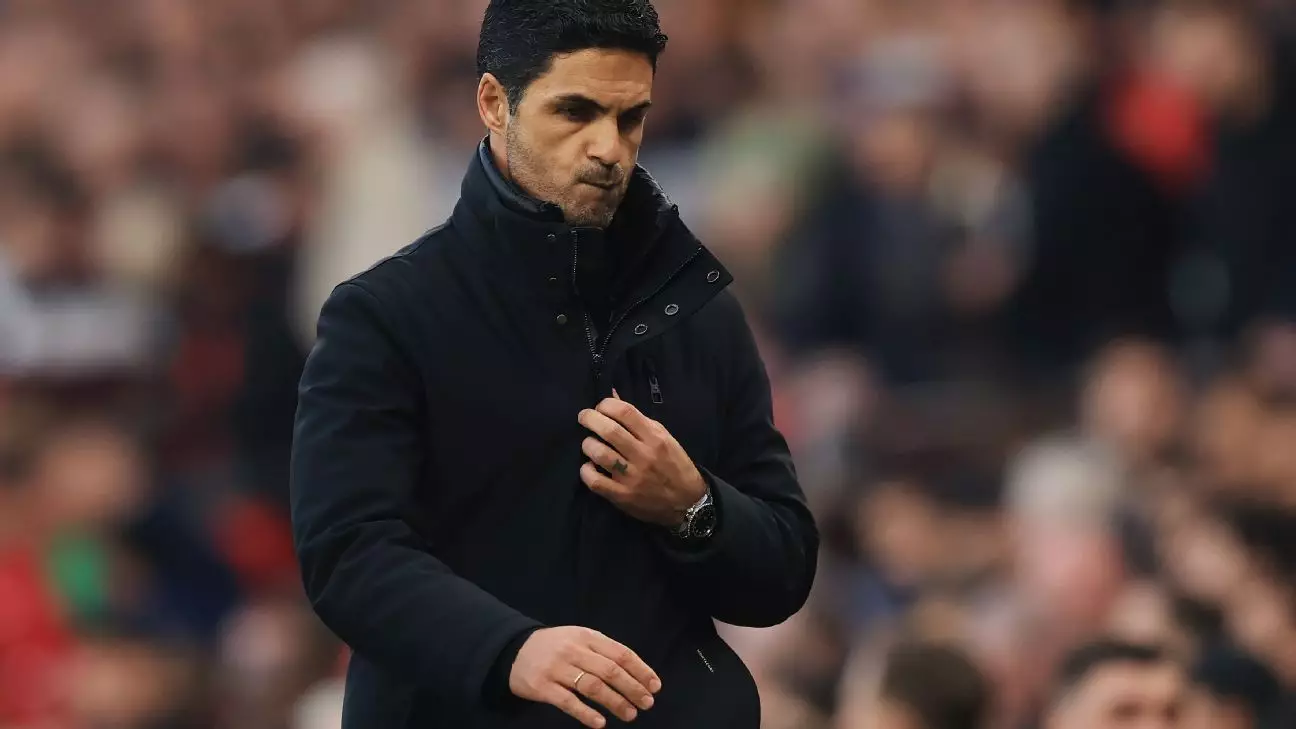Arsenal Football Club has long captured the imagination of fans and analysts alike, yet despite the promising trajectory under manager Mikel Arteta, a glaring need for a prolific striker looms large. After receiving an early exit from the Champions League, the urgency to bolster the team’s offensive capabilities is more pronounced than ever. Arteta openly admits that securing a top-tier striker is one of the most challenging tasks in modern football, which raises significant questions about the club’s summer strategy. With the Gunners experiencing their fifth season in a row without silverware, the pressure is mounting to make decisive moves that could revitalize their attacking front.
As Arsenal seeks to regain its competitive edge, prospective additions such as Red Bull Leipzig’s Benjamin Sesko, Sporting Lisbon’s Viktor Gyökeres, and Newcastle’s Alexander Isak suggest a proactive approach. However, while potential targets are being evaluated, the challenge lies not only in acquiring these talents but also in fostering a cohesive unit that can operate effectively on the pitch. Arteta’s insistence that further additions would enhance the squad complexity without disrupting existing chemistry speaks to the dual challenge of recruitment and player management.
Arteta’s Vision: Striving for Excellence
In recent interviews, Arteta’s unwavering commitment to building the club’s identity as one that consistently aims for excellence is palpable. His rhetoric emphasizes a desire to compete for the highest honors, saying he would welcome multiple goal scorers over 25. This ambition underscores the belief that quality should trump quantity when it comes to recruitment. The clarity of his intent is commendable; however, it raises an intriguing discussion about whether Arsenal’s recruitment approach is aligned with his vision.
Arteta’s comments from the previous January window, wherein he pressed for the acquisition of Ollie Watkins, reflect a broader narrative that resounds with urgency. There is a persistent question of how effectively the club can act on these wants, especially given the club’s historical hesitations in the transfer market. It amplifies the scrutiny on Arteta’s ability to balance aspiration with reality—a theme that has marked Arsenal’s recent past.
Analyzing Performance Metrics
While Arteta is optimistic about improving existing players, the stark contrast in performance metrics from last season to the current one cannot be overlooked. The Gunners amassed 89 points and scored 91 goals last season, but with only 67 points and 64 goals at this stage, it becomes clear that something fundamental has faltered. This regression calls into question the strategic choices made during prior transfer windows and whether the decisions made effectively reflect the team’s immediate needs.
Statistics play a crucial role in evaluating quality within the squad, yet artfully navigating player performance amidst a season’s narrative remains complex. When Arteta refers to the need for patience and contextual judgment, he hints at the unpredictable nature of football’s dynamics. Players fluctuate in form, and relying solely on historical statistics can mislead decision-making processes. The lesson is straightforward: nurturing talent is as important as attracting new players.
Acknowledging Rivals: Keeping Perspective
Moreover, Arteta’s acknowledgment of Liverpool’s accomplishments exemplifies a sense of sportsmanship that is often rare in high-stakes environments. By advocating for a guard of honour when Arsenal faces Liverpool, he not only expresses respect for a rival but also conveys a commitment to an ethos of competitive integrity. Such moments are reminders that progress is not solely defined by trophies but also by the relationships and respect cultivated within the sport.
This humility enhances Arteta’s leadership profile, suggesting that the Gunners can learn from rivals who have achieved consistent success. Liverpool’s ascent in football has been a testament to collective effort, strategic vision, and an unwavering belief in a coherent philosophy—a model Arsenal could benefit significantly from emulating.
The way forward for Arsenal mandates a keen eye on reinvention—a need to not just fill gaps, but to reshape an identity that befits a club of its stature. Arteta stands at a crossroads, where the decisions made in the upcoming summer window could ultimately dictate Arsenal’s trajectory in both domestic and European competitions. The emphasis must remain on forging a formidable attacking line that complements an established playing philosophy, ensuring the club regains its place amongst the elite in football.

